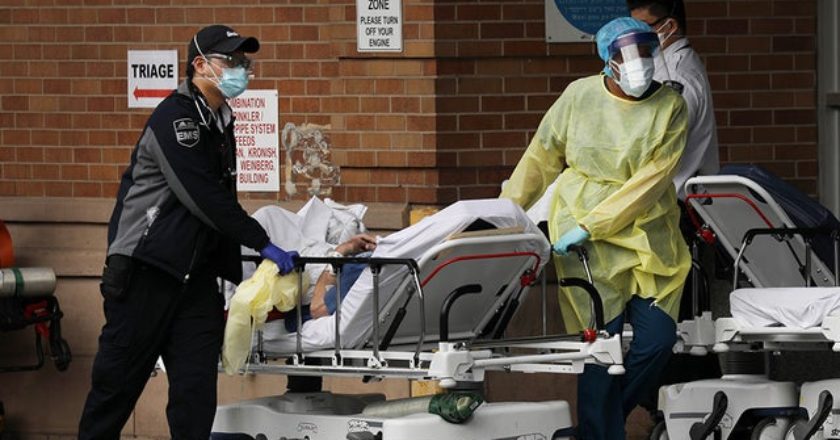


Covid-19: FIFA to release $150 million in cash reserves.
World football governing body, FIFA has disclosed plans to release the 2019/ 2020 operation funds worth $150 million to its member associations as the first step to help mitigate the economic impact of the coronavirus pandemic.
“The pandemic has caused unprecedented challenges for the entire football community and, as the world governing body, it is FIFA’s duty to be there and support the ones that are facing acute needs. This starts by providing immediate financial assistance to our member associations, many of which are experiencing severe financial distress.
Also Read: No match is worth risking life for.
“This is the first step of a far-reaching financial relief plan we are developing to respond to the emergency across the whole football community. Together with our stakeholders, we are we assessing the losses and we are working on the most appropriate and effective tools to implement the other stages of this relief plan.” FIFA stated in a statement.
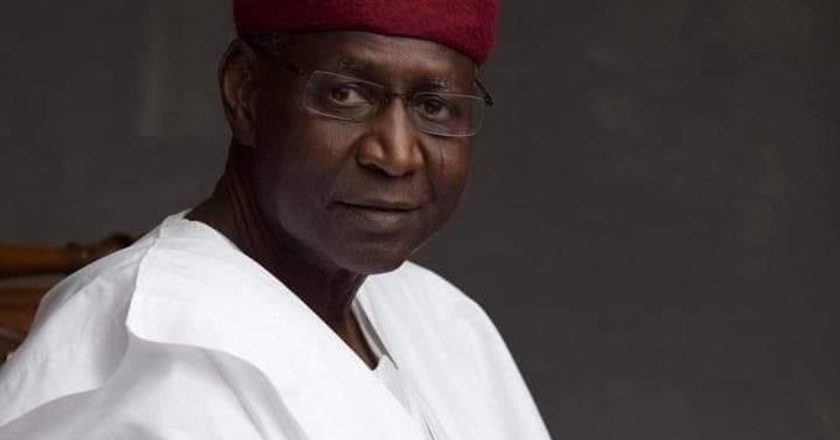
Buhari’s Chief of Staff, Abba Kyari, dies of Covid-19
The Chief of Staff to President Muhammadu Buhari, Mallam Abba Kyari, has died of COVID-19. Kyari who had tested positive for the coronavirus in March after a trip to Germany and Egypt breathed his last on on Friday, April 17, 2020.
The Senior Special Assistant to the President on Media and Publicity, Mr Garba Shehu, announced his death on his official Twitter handle, “The Presidency regrets to announce the passage of the Chief of Staff to the President, Mallam Abba Kyari. “The deceased had tested positive to the ravaging COVID-19, and had been receiving treatment. But he died on Friday, April 17, 2020.”
His medical records from Wellington Hospital, St John’s Wood, London, showed that he (Kyari) had some other underlying conditions which could have slowed down his recovery rate from the coronavirus.
May his soul rest in peace. Amen
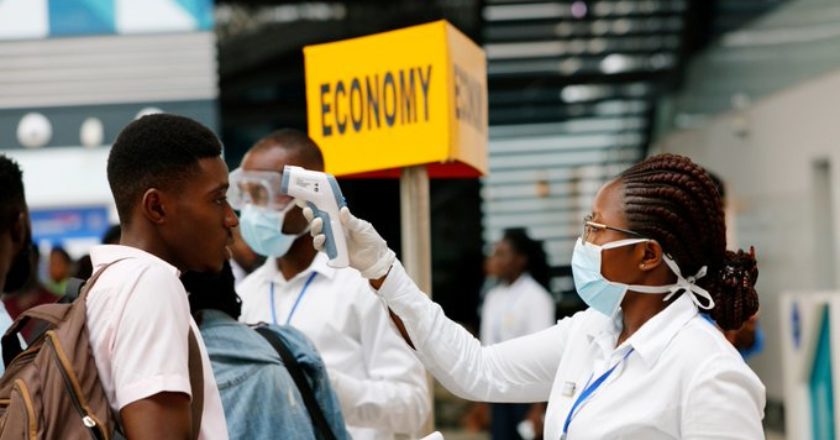
Opinion: After COVID-19, what will Africa look like in 2030 and 2063? | By: Banji Oyelaran-Oyeyinka
African leaders need to look in the mirror and ask where this continent will be in 2030 and 2063
The COVID-19 pandemic, one of the world’s most significant events, has resulted in cessation of economic activities that will lead to a significant decline in GDP, an unprecedented social disruption, and the loss of millions of jobs. According to estimates by the African Development Bank, the contraction of the region’s economies will cost Sub-Saharan Africa between $35 billion and $100 billion due to an output decline and a steep fall in commodity prices, especially the crash of oil prices.
More fundamentally, the pandemic has brutally exposed the hollowness of African economies on two fronts: the fragility and weakness of Africa’s health and pharmaceutical sectors and the lack of industrial capabilities. The two are complementary.
This is because Africa is almost 100 percent dependent on imports for the supply of medicines.
According to a recent McKinsey (2019) study, China and India supply 70 percent of Sub-Saharan Africa’s demand for medicine, worth $14 billion. China’s and India’s markets are worth $120 billion and $33 billion respectively. Consider a hypothetic situation where both India and China are unable or unwilling to supply the African market? Africa surely faces a health hazard.
Also Read: COVID-19 pandemic bolsters case for technology-based economic resilience | By: Stefan Nalletamby
The root of Africa’s underdeveloped industrial and health sectors can be encapsulated in three ways. First, some African policy makers simply think that poor countries do not need to industrialize. This group believes the “no-industrial policy” advocates who engage in rhetoric that does not fit the facts. The histories of both Western societies, and contemporary lessons from East Asia, run contrary to that stance.
Clearly, governments have an important role to play in the nature and direction of industrialization. Progressive governments throughout history understand that the faster the rate of growth in manufacturing, the faster the growth of Gross Domestic Product (GDP).
From the Economist magazine five years ago: “BY MAKING things and selling them to foreigners, China has transformed itself—and the world economy with it. In 1990 it produced less than 3% of global manufacturing output by value; its share now is nearly a quarter. China produces about 80% of the world’s air-conditioners, 70% of its mobile phones and 60% of its shoes. Today, China is the world’s leader in manufacturing and produces almost half of the world’s steel.” The keyword is “making”.
Two, rich countries therefore became rich by manufacturing and exporting to others, including high-quality goods and services. Poor African countries remain poor because they continue to produce raw materials for rich countries. For example, 70% of global trade in agriculture is in semi-processed and processed products. Africa is largely absent in this market while the region remains an exporter of raw materials to Asia and the West.
Lastly, African countries are repeatedly told that they cannot compete based on scale economy, and as well, price and quality competitiveness because China will outcompete them. For this reason, they should jettison the idea of local production of drugs, food and the most basic things.
The question is: How did Vietnam, with a population of 95 million, emerge from a brutal 20-year war and lift more than 45 million people out of poverty between 2002 and 2018 and develop a manufacturing base that spans textiles, agriculture, furniture, plastics, paper, tourism and telecommunications? It has emerged as a manufacturing powerhouse, becoming the world’s third-largest exporter of textiles and garments (after China and Bangladesh).
Vietnam currently exports over 10 million tonnes of rice, coming third after India and China.
How is it that Bangladesh, a country far poorer than many African countries, is able to manufacture 97% of all its drugs demand, yet it is next door to India, a powerhouse of drug manufacturing?
The COVID-19 pandemic has exposed Africa. African leaders need to look in the mirror and ask where this continent will be in 2030 and 2063. Africa must adopt progressive industrial policies that create inclusive, prosperous and sustainable societies.
What then should be done? A three-pronged approached is urgently needed.
First, Africa needs a strong regional coordination mechanism to consolidate small uncompetitive firms operating in small atomistic market structures. With a consumer base of 1.3 billion and $3.3 trillion market under the African Continental Free Trade Area (AfCFTA), the continent has no choice but to bring together its fragmented markets.
Second, Africa needs to build better institutions, strengthen weak ones and introduce the ones missing. No better wake-up call is required than the present pandemic.
Third, one important institution that has been abruptly disrupted is the supply chain for medicines and food, for example. Logistics for transporting capital and consumer goods across the region need predictable structures. Building or strengthening supply chains involve fostering and providing regulations for long-term agreements and competences that leverage both private and public institutional challenges such as customs regulations.
Finally, development finance institutions (DFIs) such as the African Development Bank are mandated to, and are currently, trying to fill the gaps left by private financial institutions. There is an opportunity to Africa to rethink and reengineer its future. The Africa of tomorrow must look inwards for its solutions. – whether in feeding its own people, build industrial powerhouses led by African champions.
The African Development Bank stands ready to help target and push for deeper economic transformation. Africa needs to execute structurally transformative projects that generate positive externalities and social returns. Keep our eyes on the days after.
Professor Banji Oyelaran-Oyeyinka, is the Senior Special Adviser on Industrialization to the President of the African Development Bank. He is a fellow of the Nigerian Academy of Engineering and Professorial Fellow, United Nations University. His recent book is “Resurgent Africa: Structural Transformation and Sustainable Development”, UK: Anthem Press, 2020.

More than two million people worldwide have now contracted coronavirus.
According to Spectator Index, over two million people, 2,012,000 to be precise have now contracted the novel coronavirus. There are 127,590 deaths, and 500,000 recoveries.
Most coronavirus deaths.
US: 25,350
Italy: 21,067
Spain: 18,056
France: 15,729
UK: 12,107
Iran: 4,683
Belgium: 4,157
China: 3,341
Germany: 3,294
Netherlands: 2,945
Turkey: 1,403
Brazil: 1,378
In Africa, there are now more than over 16,000 confirmed cases of coronavirus according to the latest data by the John Hopkins University and Africa Center for Disease Control on COVID-19 in Africa,
Major African stats as of April 15
Confirmed cases = 16,265
Number of deaths = 873
Recoveries = 3,235
Infected countries = 52
Virus-free countries = 2 (Lesotho, Comoros)
Countries in alphabetical order
Algeria – 2,070
Angola – 19
Benin – 35
Botswana – 13
Burkina Faso – 528
Burundi – 5
Cameroon – 848
Cape Verde – 11
Central African Republic – 11
Chad – 23
Comoros – 0
Congo-Brazzaville – 74
DR Congo – 241
Djibouti – 363
Egypt – 2,350
Equatorial Guinea – 41
Eritrea – 35
Eswatini – 15
Ethiopia – 82
Gabon – 57
(The) Gambia – 9
Ghana – 636
Guinea – 363
Guinea-Bissau – 43
Ivory Coast – 638
Kenya – 216
Lesotho – 0
Liberia – 59
Libya – 35
Madagascar – 108
Malawi – 16
Mali – 144
Mauritania – 7
Mauritius – 324
Morocco – 1,888
Mozambique – 28
Namibia – 16
Niger – 570
Nigeria- 373
Rwanda – 134
Sao Tome and Principe – 4
Senegal – 299
Seychelles – 11
Sierra Leone – 11
Somalia – 60
South Africa – 2,415
South Sudan – 4
Sudan – 32
Tanzania – 53
Togo – 77
Tunisia – 747
Uganda – 55
Zambia – 45
Zimbabwe – 18
Meanwhile, the European Union has made a donation of $55m to Nigeria, to boost the country’s fight against coronavirus.
Also Read: COVID-19 pandemic bolsters case for technology-based economic resilience | By: Stefan Nalletamby
“Receiving the EU delegation to the country, led by Amb Ketil Karlsen, President Buhari said the donation would go a long way in supporting Nigeria’s efforts at controlling & containing the virus to prevent community spread, as well as revitalise the national health care systems. The President used the occasion to express sincere condolences of the Government and people of Nigeria to EU-member countries and families who lost their loved ones as a result of the COVID-19 pandemic,” the presidency confirmed in a statement.
In his remark, Ambassador/Head of European Union Delegation to Nigeria and to ECOWAS, Ambassador Karlsen described the donation, which is through the UN COVID-19 basket fund as, so far, the largest single contribution to the response in Nigeria and the largest support that EU is providing anywhere outside Europe.

Opinion: Africa cannot go back to ‘business as usual’ when COVID-19 pandemic is over | By: Babatunde Omilola
Like every other pandemic that the world has experienced in the past, coronavirus will eventually come to an end. It will be defeated, and life return to normal. But it will teach us an important lesson: the need to invest in health infrastructure across the world, and particularly in Africa.
For centuries, global and national agendas have given premium to wealth creation and less attention to healthcare. Indeed, the pursuit of wealth has even come at the expense of the environment. Budgetary allocations for health have been woefully inadequate compared to other sectors. Just imagine this: if what we are experiencing today was a virus that attacked machines and not human beings, normal life would go on – handshakes, kisses and hugs would still symbolise friendship, love and comfort and not the threat of infection. From now on, we must prioritise human health collectively, not individually.
Globally, as at 6 April 2020, there have been 1,174,866 confirmed cases of COVID-19, including 64,541 deaths, reported to the World Health Organization (WHO). We may not have reached the apex of this pandemic, and what we have seen so far from other countries suggests that Africa is a ticking time bomb. If advanced economies like Italy, Spain, the United States and France are struggling to contain the wrath of this pandemic, then it has a devastating potential in poor countries like Uganda, Cameroon, Burkina Faso and Senegal, where lifestyle, beliefs, culture and economic conditions offer fertile grounds for disease to thrive.
One would have thought that the Ebola outbreak, which began in 2014, would have opened the eyes of key stakeholders in Africa to consider health system strengthening as a key priority. But this has not been the case. At the beginning of the Ebola epidemic, fear and panic prompted some African governments to pay attention to shoring up their health systems, yet, when the grip of the epidemic loosened, business as usual continued.
Also Read: Opinion: The pandemic is no time for fiscal distancing | By: Akinwumi Adesina
Africa cannot afford to go back to business as usual when the COVID-19 pandemic is finally halted. Such an attitude would be akin to settling down to sleep while our roof is on fire. There are too many health issues to be fixed – from an inadequate number of health care professionals to a lack of health infrastructure.
At present, Africa is home to more than 1.3 billion people and bears one-third of the global disease burden yet accounts for only 3% of the global health workforce. The average physician density in sub-Saharan Africa stands at two doctors per 10,000 people. This ranges from 0.6 in Burkina Faso to nine doctors in South Africa. Nigeria, which is the most populous nation in Africa, has physician density of three doctors to 10,000 population. Ethiopia has just one doctor per 10,000 people, even though it has the second largest population on the continent. In contrast, Italy, France and Spain, where COVID-19 is taking its heaviest toll, have physician densities of 40.9, 40.6 and 32.3 doctors per 10,000 population respectively.
There is also a huge health infrastructure gap. An assessment by WHO regarding the status of health infrastructure across the continent revealed woefully inadequate physical health infrastructure. Dispensaries and health centres are limited in supply. The shortage of these facilities makes access to primary healthcare a challenge to most rural residents. For instance, total hospital density per 100,000 population across the continent ranges from 0.06 to 0.17. The number of hospital beds, including intensive care unit (ICU) beds, are limited. A country like South Africa, even with its advanced public health systems has less than 1,000 ICU beds. In Malawi, 17 million people rely on only 25 ICU beds. Countries like Zimbabwe and Liberia have none.
Laboratory capacity in most African countries are equally bereft of modern facilities. The emergency medical systems across many countries in Africa can only deal with a fraction of those needing care. In some deprived communities in Burkina Faso, women requiring emergency care are sometimes transported on bicycles to health centres. Similar conditions can also be found in Chad, Central African Republic, northern Ghana and some rural parts of Nigeria. At the moment, the United States is battling with a limited supply of ventilators for COVID-19 patients. In Africa, very few countries can boast of having even 100 ventilators. There is an urgent need, therefore, to pay attention to health system strengthening in Africa.
Investing in quality health infrastructure makes sense from both economic and social perspectives. Indeed, there is enough evidence that shows that investments in health infrastructure create an avenue for resilient societies and drive inclusive growth. Development partners have a role to play. They can prevent the collapse of health systems in Africa by establishing special funding schemes to support the health expenditures of African countries. These must, however, be targeted and well defined. The support should aim to avoid overstretching existing health infrastructure while strengthening human resource capacity.
The starting point should be investments in digital health tools. Breakthrough innovations such as telemedicine, mHealth and drones are transforming healthcare in advanced countries, meanwhile their adoption in Africa have been rather slow. Supporting the scaling up of these technologies in Africa could help governments deal effectively with epidemics and the growing burden of chronic diseases. Supporting the construction of health posts, the purchasing of personal protective equipment and equipping medical centres with modern facilities can follow. There is no time to waste: while finding ways to battle the current pandemic may be daunting, it also presents an opportunity to focus on the strengthening of Africa’s health systems by adopting a comprehensive and integrated approach based on each country’s individual needs. Let us not go back to business as usual after this pandemic.
Babatunde Omilola is the Manager for Public Health, Security and Nutrition Division at the African Development Bank.
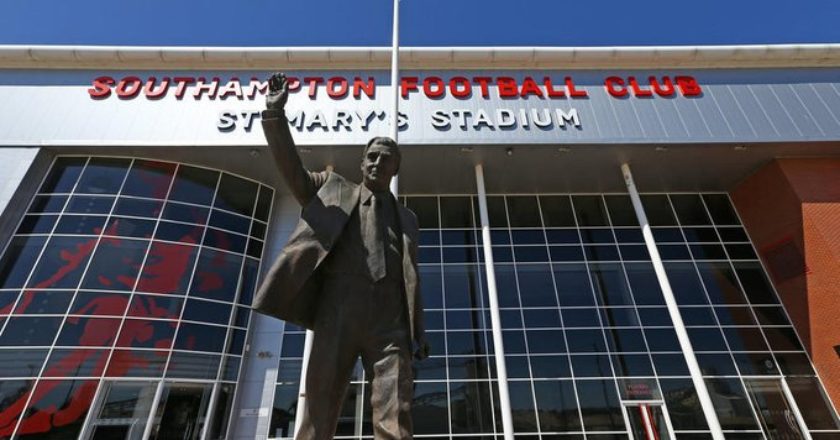
Covid-19 crisis: Southampton is the first Premier League club to agree wage deferrals.
Southampton have become the first Premier League club to announce their players will defer part of their salaries amid the coronavirus crisis. The club will not furlough non-playing club staff, who will continue to receive 100% of pay, and first-team players, directors and manager have agreed to defer part of their salaries until at least June “to help protect future of club, staff…and community we serve”.
In a statement on the club’s website, Southampton said: “Furthermore, the club can confirm that it will not use the government’s Job Retention Scheme during April, May and June. Our owners, Mr Gao and Katharina Liebherr have put measures in place to ensure that all staff not deferring part of their salaries will continue to receive 100% of their pay, paid in the normal way until 30 June. Any decision on the future beyond this date will be made in advance of this, but only when more information is known.
Also Read: Covid-19: The world’s largest critical care unit unveiled in London.
“In these unprecedented times we are dealing with many challenges to our business model and day-to-day operations. The situation is ever-evolving and we will continue to monitor and assess the impact to the club over the coming weeks before deciding any further action necessary. Everyone at the club remains fully committed to the community we value so highly in Southampton.
The statement added: “We will continue to offer our full support to the city of Southampton through the work of the Saints Foundation and provide any further assistance we can. We ask everyone connected to the club and the city of Southampton to listen and adhere to the Government’s advice.
Also Read: Should clubs pay players during this covid-19 crisis? Here’s what FIFA thinks.
“Meanwhile, we will continue to prepare our club for a return to the pitch and make sure that, when safe, we are ready to play and serve the people of Southampton again. Until then, We March On. Together.”
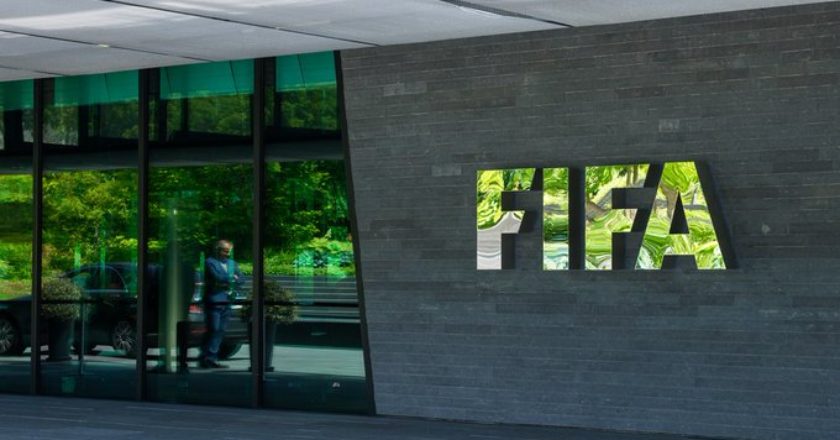
Should clubs pay players during this covid-19 crisis? Here’s what FIFA thinks.
Football governing body, FIFA has approved the extension of player contracts until seasons are able to finish and the movement of transfer windows in response to the coronavirus pandemic. This decision was reached in a task force led by the chairman of the FIFA Football Stakeholders Committee, working on recommendations and guidelines to address issues caused by the coronavirus crisis. Clubs, players, leagues, national associations and confederations were all represented in the meeting.
“The COVID-19 pandemic has clearly changed all the factual circumstances around football for this season, So, FIFA, together with the stakeholders, has come up with some practical ideas and proposals to tackle these new circumstances. Whilst this will not solve each and every problem, it should serve to bring a measure of stability and clarity to football for the foreseeable future. We hope that this collaborative effort, under the leadership of FIFA, can provide a positive example of how football can come together and show unity, solidarity and a spirit of compromise in order to face the challenging times ahead.” FIFA president Gianni Infantino said.
It was decided that contracts covering the 2019/20 season in England which are set to expire on June 30, 2020, will “be extended until such time that the season does actually end”. Also, transfer deals due to happen in the next campaign would be “delayed until the next season actually does start”
Also Read: Iker Casillas calls for an El Clasico charity match when football returns.
“Accordingly, FIFA will be flexible and will allow the relevant transfer windows to be moved so they fall between the end of the old season and the start of the new season. At the same time, FIFA will try to ensure, where possible, an overall level of coordination and will also bear in mind the need to protect the regularity, integrity and proper functioning of competitions, so that the sporting results of any competition are not unfairly disrupted.”
FIFA also “strongly encourages clubs and players to work together to find agreements and solutions during the period when football is suspended”.
On the problem of player remuneration during this covid-19 crisis, FIFA maintained that, “looking at all aspects of each situation in an even-handed manner, including what Government measures are there to support clubs and players, whether pay should be deferred or reduced and what insurance coverage may exist. If parties cannot agree and, as a consequence, cases come to FIFA, the factors to be examined will include the following: whether there was a genuine attempt by the club to reach agreement with the players; what the economic situation of the club is; the proportionality of any adjustment to player contracts; the net income position of players after any contract adjustment; and whether players have been treated equally or not. In this way, FIFA hopes that it will be able to find solutions that are fair and balanced for both sides.”

Iker Casillas calls for an El Clasico charity match when football returns.
Real Madrid and Spain legend Iker Casillas has suggested that a ‘vintage’ El Clásico be arranged with former players of the two clubs, as soon as the coronavirus nightmare ends, and funds raised will be donated to charity. Wouldn’t that be beautiful?
“When this nightmare (coronavirus) is over, we should gather the past greats and play a vintage Clasico. Fundraiser for those in need.” He wrote on his Twitter page recently.
The World Cup winning captain who made his debut with Los Blancos in 1999 to become the youngest keeper to have played in the Champions League, and to have won the competition later that season suffered a heart attack during a training session with Porto in 2019 and retired in February this year.
Also Read: Footballing world is joining the fight against the COVID-19 pandemic.
He played 16 seasons for the Real Madrid first team, making 725 appearances, and won five La Liga titles and three Champions League titles.
I am certain the football world is up for this and we certainly can’t wait for it.

Funke Akindele and hubby to be charged to court.
Following a violation of the restriction orders in Lagos State, Nollywood actress Funke Akindele and her husband, Abdulrasheed Bello will be charged to court. This is coming less than 24 hours after the couple were criticised for holding a party in their house amid the Coronavirus (COVID-19) pandemic. You can read the initial report here.
The Police Public Relations Officer in Lagos, Bala Elkana, who confirmed the Nollywood star’s arrest on Sunday, revealed that the guests at the party were celebrating a birthday party organised by the couple in their Amen estate home.
Also Read: Mixed reactions trail actor, Desmond Elliot’s recent donation to his community.
Police detectives from the State Criminal Investigation Department (CID), Yaba were at the location where the actress was arrested. Her husband turned himself in after an order demanding that he makes himself available.
The couple who are the first to flout the recently passed law by the State Assembly and signed by Governor Babajide Sanwo-Olu will be charged at the Magistrate Court 1 in Ogba.
They may be fined between N100,000 – N200,000, face one-month incarceration in the correctional centre or three-month community service.
Contrary to claims that the actress is an ambassador for antiseptic brand, Dettol and the NCDC, Dettol has come out to refutethe claims.
“We have been made aware through social media that Funke Akindele recently, acting in her personal capacity, had a celebration which is against the caution to the public on social distancing during the covid-19 pandemic. The NCDC partnered with Dettol on a public service message to educate our communities about preventive measures against COVID-19. Funke is not a brand ambassador of the NCDC. As a responsible organization and brand Dettol does not condone any breach of the guidelines on Covid-19. As an organization we are concerned at the turn of events. We will continue to support NCDC and the Nigerian govt to fight COVID-19” They wrote on Twitter.
